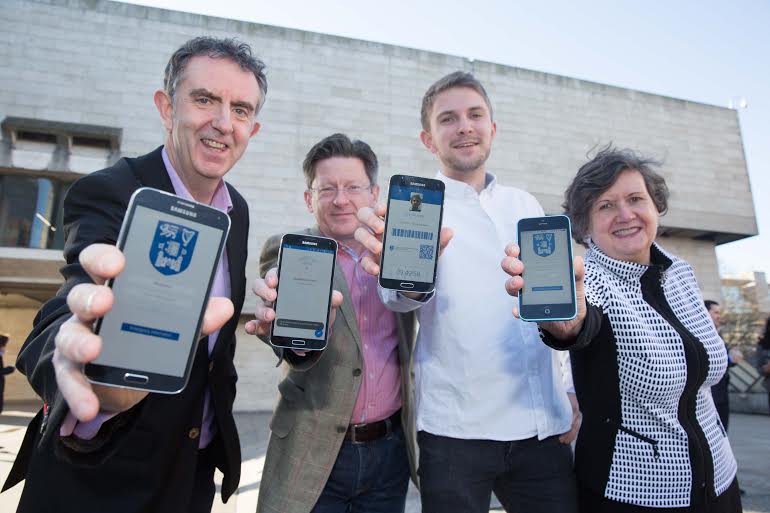After getting their digital student card onto the phones of 6,500 Trinity students, making their lives easier for never having to worry about carrying around a plastic card, the team behind Trinity ID, which has since expanded to iDly, is eyeing up national expansion, with Irish Rail accepting the app as early as next week.
Founded by Finn Murphy, a former Trinity College Dublin Students’ Union (TCDSU) Ents Officer who just completed his fourth year of mechanical engineering, two of iDly’s five-person team are currently working full-time through Launchbox, Trinity’s startup incubator system.
Originally proposed to Trinity by Murphy, the project received funding from the college after 91.6 per cent of students surveyed by TCDSU in 2015 said that some form of digital ID would be beneficial to their college experience.
Speaking to The University Times, Murphy states his surprise with the ease that Irish Rail accepted the app: “They phoned me a week later and were like ‘yeah, we all think this is the way things are going.’” With Irish Rail informing their employees and ticket collectors to accept the app as a new form of student ID, Murphy has been told that the app may be accepted by the company as early as next week.
While currently you need a student travelcard to purchase zone-based tickets, such as a student monthly ticket, the app will take the place of a physical student card in buying day tickets.
The step marks a significant one for the company, and a shift in how we identify ourselves: “Once Irish Rail starts accepting it, they’ll be the first national body to accept a digital form of ID.”
This step is just the first in what could become a very lucrative market for the team. Also eyeing up Bus Éireann, Murphy adds that they’re looking to expand into other colleges, through the students’ unions: “So when we’re pushing to integrate all the functionalities of the digital card with the student card then the students’ unions have the leverage to say to the Colleges: ‘There’s already 4,000 students using the card, all you have to do is plug into the system and let students access their own data.’”
A recent Guardian article on the company saw commenters raise concerns about privacy, to which Murphy counters: “The subtle point is that no one has moved your information from where it is. What we do is basically we let people have access to it. It’s the student’s data, you’re just giving them access to it.”
The team is also in talks with Trinity’s alumni office such that “when you graduate, instead of your Trinity ID app becoming dead weight, it transforms into your alumni ID”. Currently alumni of the college get deals such as free access to the Book of Kells and discounts in the library shop. Access to these requires going to the Alumni Office to get a plastic identification card, and adding the digital system is seen as something of a win-win: “What I’ve been saying to the office is that people can just download the alumni card, then all their up-to-date contact information is with the alumni office and they get a really convenient way to interact with Trinity”.
There are also plans to develop the system for businesses, where plastic press passes at everything from large matches to the likes of the Websummit could be replaced by an online system.
Moving beyond the student sphere, the company appears to be moving into a largely untapped space: “We’re not just looking at student IDs, we’re looking at how people identify themselves”.







